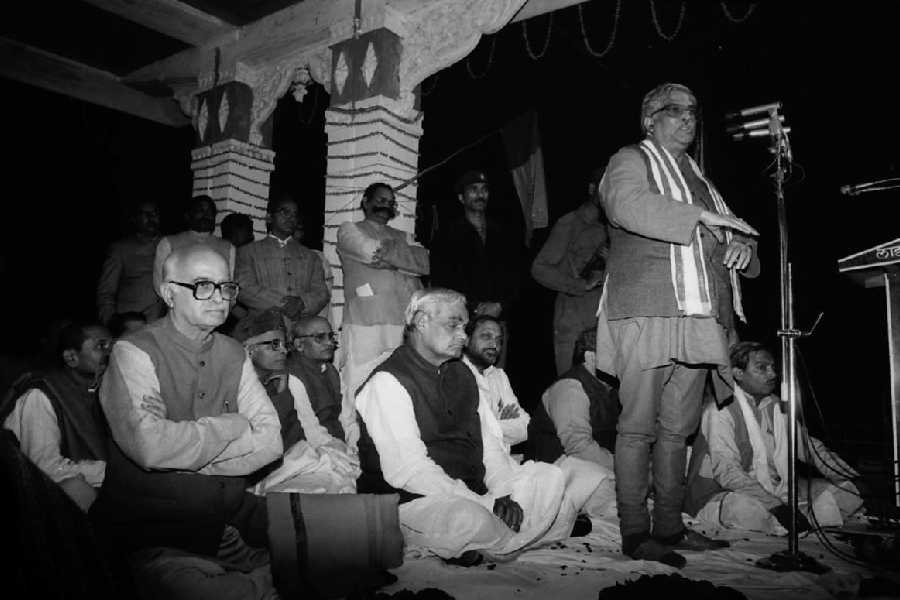by ABHISHEK CHOUDHARY

(An extract from the second volume of Abhishek Choudhary’s biography of the former prime minister)
All through late 1992, Vajpayee covered genuine dilemmas with deliberate doublespeak. He questioned the clamour among some BJP men to rename his constituency of Lucknow as Lakshmanpur (Ram’s brother Lakshman apparently having founded the city), just as the state government was hoping to rename Allahabad as Prayagraj. On a tour of rural Lucknow, local party workers greeted him with cries of ‘Jai Shri Ram’. After a while, the usually calm MP lost his temper: ‘Why don’t you say Jai Hind occasionally?’ The embarrassed slogan-warriors slunk away. Elsewhere, though, he bragged that his party was not afraid for the UP government: Kalyan Singh was going about ‘with the resignation letter in his pocket’. On his travels, he also often appealed to Muslims to relinquish their claim on Babri, ‘keeping in view the sentiments of the crores of Hindus’ who believed the spot to be the birthplace of their most revered god.
…The BJP national executive members, who met in Bhubaneshwar in mid-November, were mostly cheerleaders. Even so, the four BJP chief ministers did not want to lose their executive jobs, and, between them, Shekhawat — who had been involved in the backchannel negotiations with three prime ministers — volunteered to speak out. The Himachal Pradesh Chief Minister Shanta Kumar recollected the scene the next day:
“The cry of ‘Jai Shri Ram’ was so loud there that Shekhawat did not stand up. I reminded him, but he was hesitant: ‘Chhodo, chhodo’. After a while I stood up arguing that since lakhs of people would congregate in Ayodhya on 6 December — and since we were governing the [UP] state, and were no longer in opposition — we ought to act responsibly. But I was snubbed by the crowd, and forced to sit down: ‘Baitho-baitho, baitho-baitho.’ Atalji was quiet; he just kept looking all around.”
There was near consensus within the BJP now to bring down the mosque. Over the decades since 1992, more robust circumstantial evidence has emerged of the rigorous plan to raze the three-domed Babri Masjid. Among the documents that reveal the psychology of the saffron brotherhood on the eve of the demolition is the memoir of a senior IB official who had been a Sangh fellow-traveller for decades — someone who was thick with the top BJP-RSS brass — but disagreed with their present strategy:
“I gathered an impression that they had adopted a multi-layered operational plan by assigning specific role to each segment of the Parivar. The VHP, Bajrang Dal and other associate bodies were under instructions to go ahead with the demolition of the disputed structure and their volunteers were trained at different locations under expert supervision. The BJP leadership was assigned the role of putting on ‘mukhotas’ (masks) of political rhetoric mixed with frenetic religious appeal. Leaders like Vajpayee and Advani managed to display the moderate face of the plan. However, most of them were fully aware of the plan of demolition of the mosque.”
All through November, Vajpayee moved between Delhi and the state capitals — Patna, Lucknow, Bhopal — to mobilize the state units for the kaarsewa. It seems he did not mind this mid-rank leadership as compared to the brains trust. For the same reason, he may have been unaware of the more granular details of the conspiracy.
Telegraph for more
